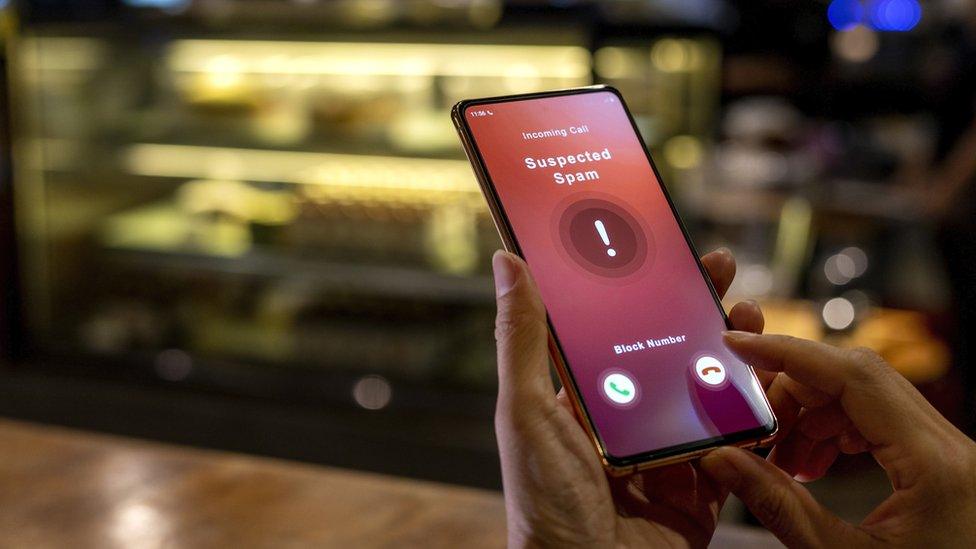How to avoid cyber scams on social media
- Published
- comments

Some scammers target people on social media
Instagram users are being warned about a social media cyber scam leading people to hand over their bank details online.
People on the app are being tagged in posts congratulating them for winning a gift card for the fashion brand Shein.
Users are encouraged to claim the prize by going on to a website that looks very real, and following a set of the instructions which includes answering some questions.
However, people who follow through with this can be tricked into signing up for a subscription service without knowing and they never receive the gift card.
Some users have complained about being tagged in posts promoting the fake competition a number of times and Shein has warned people about the cyber scam.
"Beware of scam fake gift card or collaboration scams online," the company said in a recent Instagram post.
"We will never request payment via a mobile payment app. If you are asked to pay to participate, please be alert and do not share your details!"
What is a cyber scam?

There are lots of different types of cyber scams
Criminals use scams to try and get money from people in a dishonest way, something which is illegal.
Cyber scams are ones which take place online and can happen on computers, laptops, smart phones and tablets. Scammers can use a variety of methods to try and trick people online.
This includes emails with links to fake websites, and social media posts or messages promoting fake giveaways or phoney opportunities.
There isn't a specific type of person who can fall for a cyber scam. People from all different backgrounds and of all different ages can be targeted.
How can you avoid scams on social media?

There are many things people can do to avoid getting caught out by scams on social media.
Action Fraud is the UK's national reporting centre for fraud and cyber crime. It recommends some simple things people can do to stay safe online including the following:
1. If something sounds too good to be true, it probably is - be cautious of things you see on social media offering you deals or saying you've won a competition out of the blue. If it doesn't sound right to you, make sure to question it.
2. Don't give any personal information including your name, address, email, number or bank details, to anyone without confirming they are who they claim to be. If you think something is suspicious, make sure to let a responsible adult know and get them to contact the company directly to make sure.
3. Never click on an unexpected email, even if it looks like it comes from a real company. If you get an email like this, don't rely on the email address to confirm that it's come from a particular company as scammers can copy these in a way to make them look real.
- Published7 February 2023

- Published8 June 2020

- Published10 February 2020

